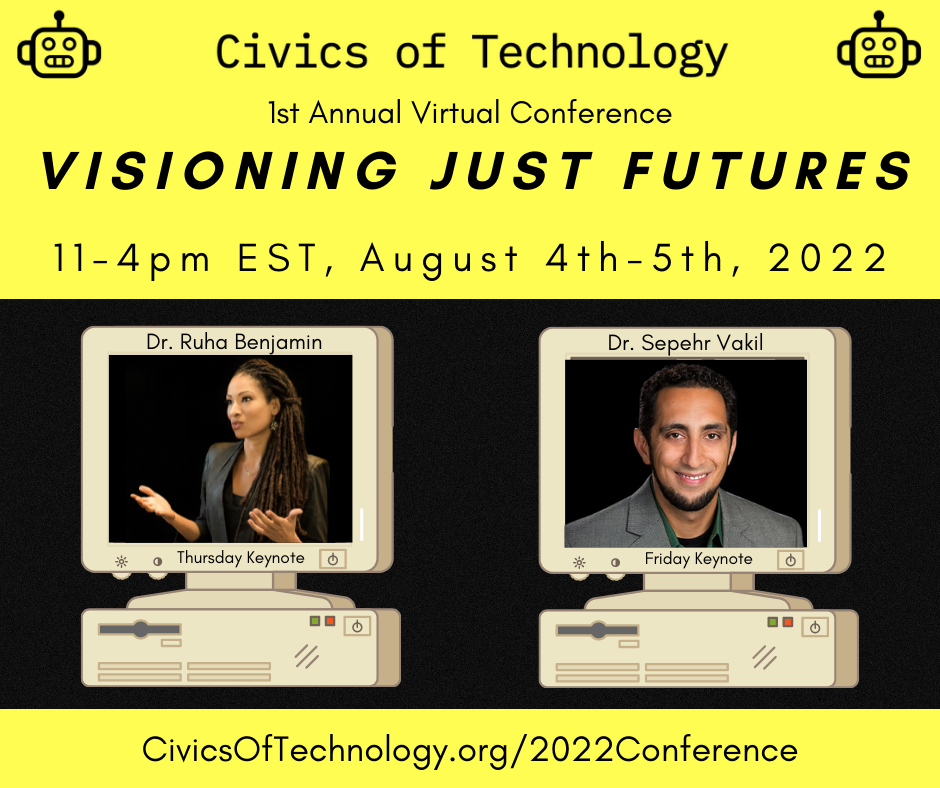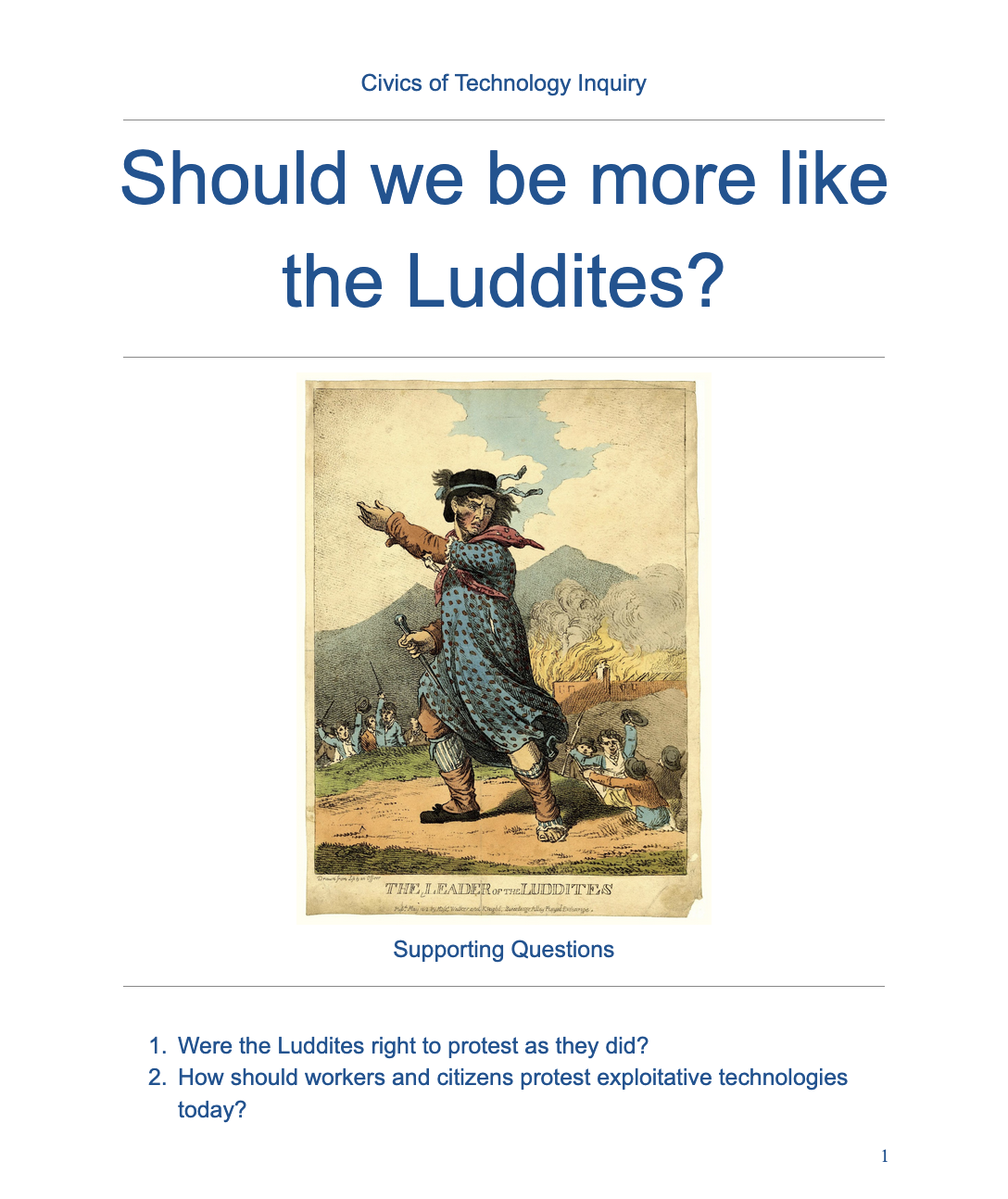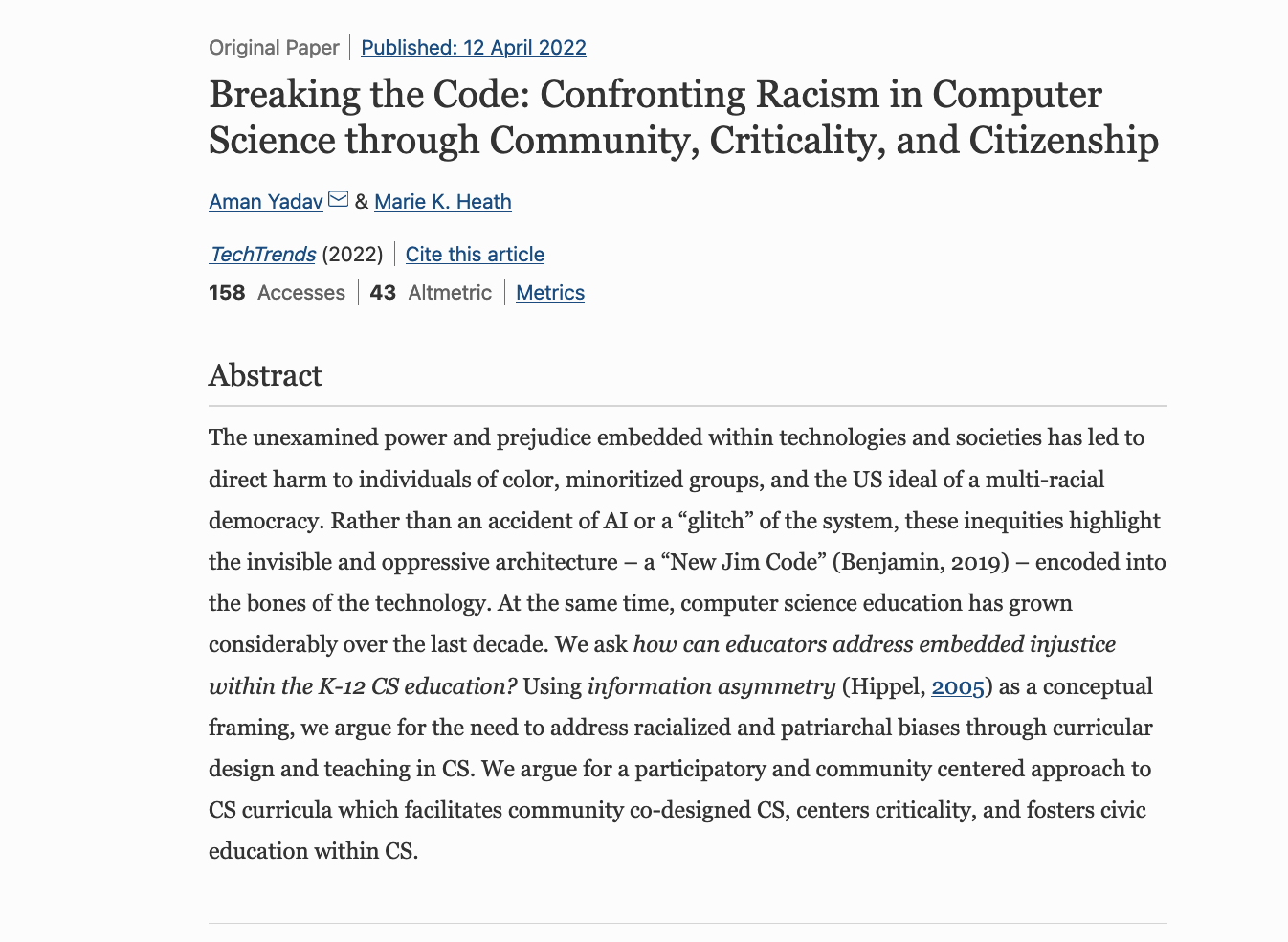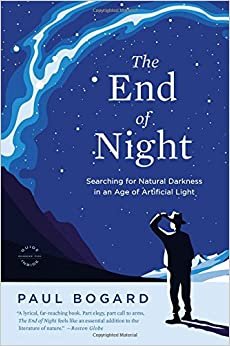Subscribe to our newsletter
Subscribe to our newsletter

The 1st Annual Civics of Technology conference… was it a dream?
In this post, Dan reflects on the 1st Annual Civics of Technology conference held on Thursday and Friday.


What if automation makes our lives easier and worse?: A Review of Nicholas Carr’s The Glass Cage
In this post, Dan Krutka reviews Nicholas Carr’s 2014 book, The Glass Cage, and considers whether computer automation, and other technological advancements, make our life easier and worse.

Building from A Starting Point: Grafting a Psycho-Social Approach onto Bubble-Bursting Political Information
In this blog, Dr. Cathryn van Kessel describes A Starting Point (ASP), a video-based civic engagement platform with a website, and how teachers can use it to burst our political bubbles.

Previewing the 1st Annual (and free) Civics of Technology Conference
In this post, we preview the first annual (and free) Civics of Technology conference to take place on August 4th and 5th!

Applying the Baldwin Test to Ed-Tech
In this post, Charles Logan argues that educators can apply the Baldwin Test to Ed-Tech.

A racist soap dispenser? Critical Theory and the non-neutrality of society
Can soap dispensers be racist? Is it the technology that is racist? Is it our society that is racist? Critical theory helps us understand why society turns on its own people, oppressing and harming the humans living within it. It also positions us to take actions for a more just future.

Do you suffer from Mean World Syndrome?
In this blog post, Michelle Ciccone draws our attention to how mean world syndrome causes us to view the world as more dangerous than it is.

The Silver Bullet of Anti-Shooter Educational Technologies
Anti-shooter technologies in schools are educational technologies. But do they move us toward a just future? Do they make schools safe places for students to learn?

Using Figure/Ground Analysis to Find What’s Hiding in the Background of Media
In this post, Michelle Ciccone describes figure/ground analysis and offers 9 lessons you can do in your classroom to help students interrogate what hides in the background of media.

An Introduction to Media Ecology for Educators
In this blog post, Lance Mason offers an introduction to media ecology for educators.

Healing Technologies, Necessary Technologies, and other Student Ideas from the Technology Reset Simulation
In this blog post, Dan Krutka shared the Technology Reset Simulation and students’ responses.


Should we be more like the Luddites?
In this week’s post, Dan Krutka was inspired by a couple pieces of Luddite-focused media that he came across this week to offer reflections on the Inquiry Design Model (IDM) lesson on the site that asks students, should we be more like the Luddites?


Why you can’t pay attention to this book review of Stolen Focus
In this post, Jacob Pleasants reviews Johann Hari’s 2022 book, “Stolen Focus: Why You Can’t Pay Attention—and How to Think Deeply Again.” Will you be able to focus on it?

New Research - Breaking the Code: Confronting Racism in Computer Science through Community, Criticality, and Citizenship
In this post Marie and Aman discuss their recent article on possible ways forward to confront racism within computer science education.


What do we give up for the benefits of electric lighting?
Jacob Pleasants reviews Paul Bogard’s 2014 book, “The end of night: Searching for natural darkness in an age of artificial light.” This book and review to ask questions such as, What do we give up for the benefits of electric lighting?

Mapping the Media Education Terrain
In this post, Dan Krutka, Marie Heath, and Cathryn van Kessel offer a new way to help teachers teach students “media literacy” by mapping the media terrain. They offer 5 approaches that can complement each other in offering a holistic media education our students and society needs.
